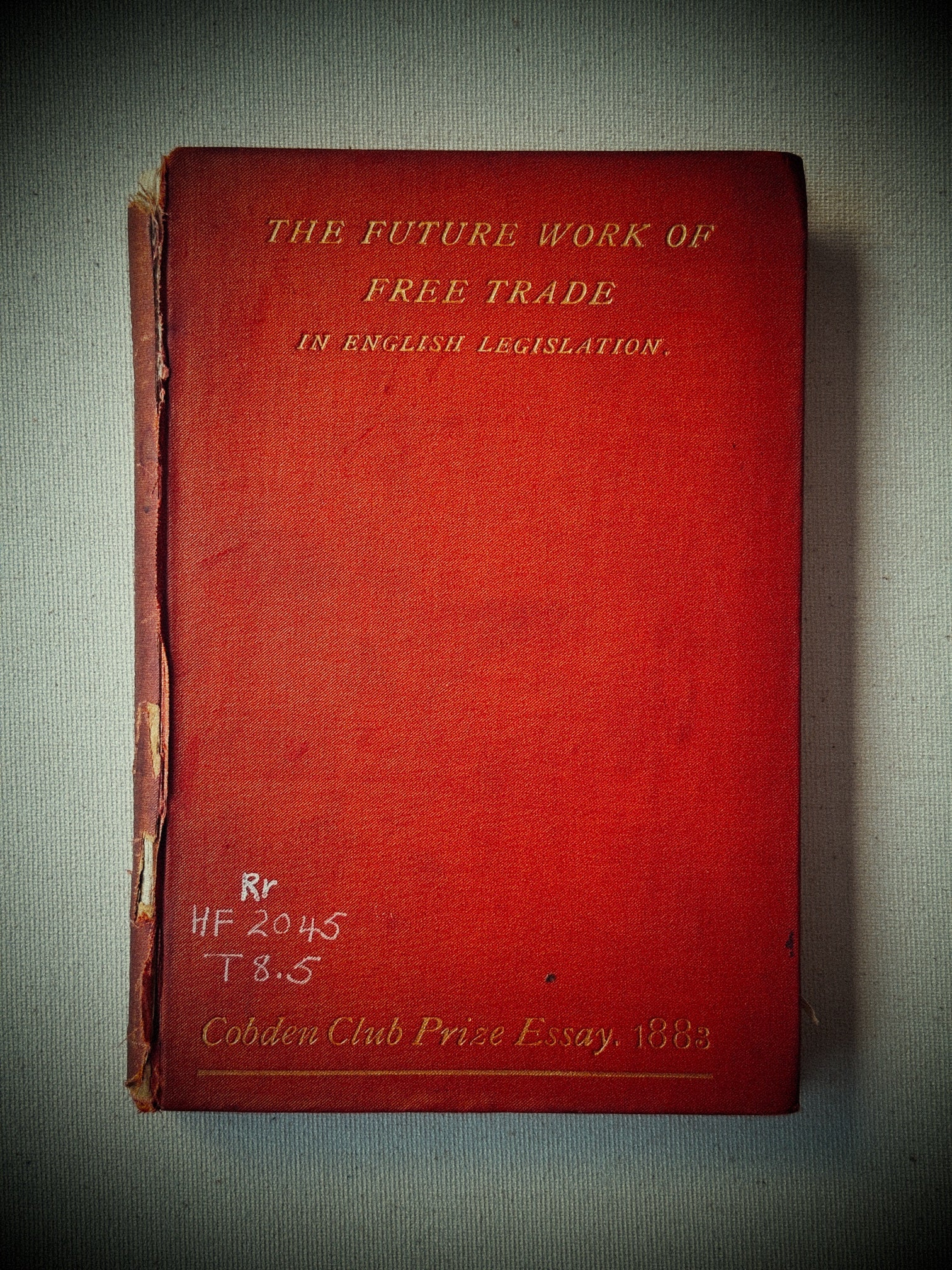
The Future Work of Free Trade in English Legislation – C.E. Troup, B.A. (London, T. Fisher Unwin, 1884)
Description
Bound in red cloth with gilt lettering on the cover and spine, this slim volume carries the austerity of a political pamphlet elevated into book form. The spine shows wear, with splitting along the hinges, and cataloging marks and library stamps are visible on both the cover and title page — evidence of its institutional life. The typography is sober, matching the subject matter, while the binding, though fragile, still holds.
History & Interest
This essay, awarded the Cobden Club Prize in 1883, reflects the intellectual and political battles of the late 19th century surrounding free trade. The Cobden Club, named after the famed British statesman Richard Cobden, promoted liberal economic reforms rooted in free trade principles. C.E. Troup (later Sir Charles Edward Troup, a senior civil servant in the Home Office) wrote this work while at Balliol College, Oxford. Its publication by T. Fisher Unwin, a London publisher known for political and social works, positioned it within the heart of Victorian debates on economics and policy.
Age
Published in 1884, this copy is 141 years old. It belongs firmly to the Victorian era, a time when free trade was a cornerstone of British politics and a symbol of industrial expansion.
Obscure Lore
Beyond its economic argument, the essay offers a window into the optimism of liberal thought in the 1880s — a belief that rational legislation could perfect markets and secure prosperity. As later critics noted, many of these hopes were tested, reshaped, or dashed by the social upheavals of the 20th century. The book thus stands both as advocacy and artifact: a testimony to a moment when free trade was treated almost as an article of faith.
Modern Appeal
Collectors of political economy, Victorian history, or Cobden Club publications will find this volume compelling. Its historical importance outweighs its scarcity as a library-marked copy, though original Cobden essays are sought after. For modern readers, it offers a direct link to the intellectual DNA of globalization debates that still resonate today.
